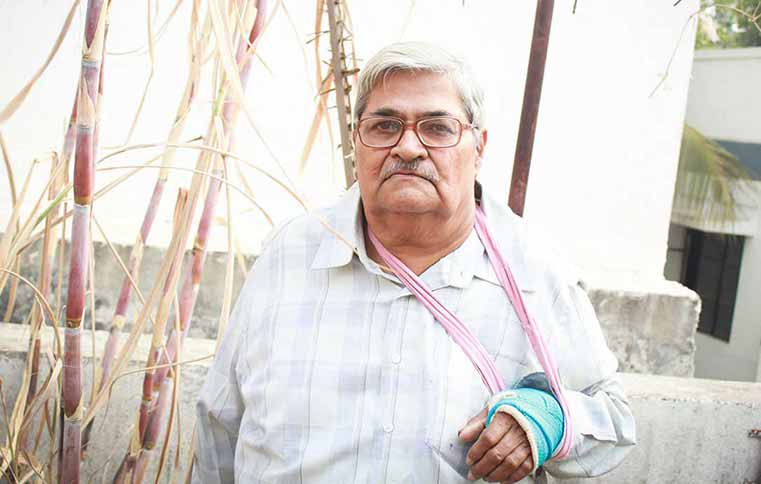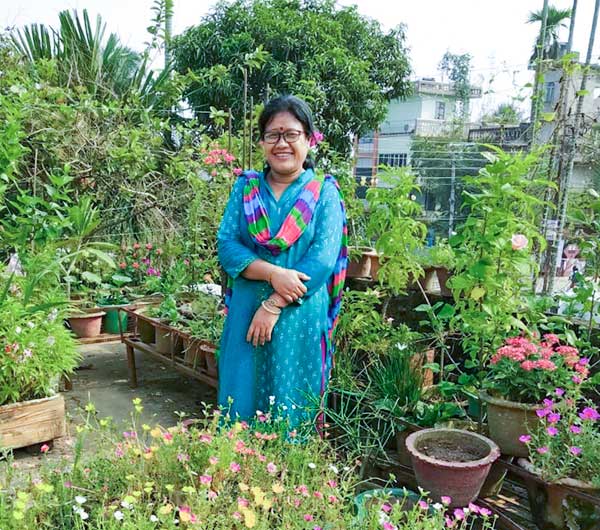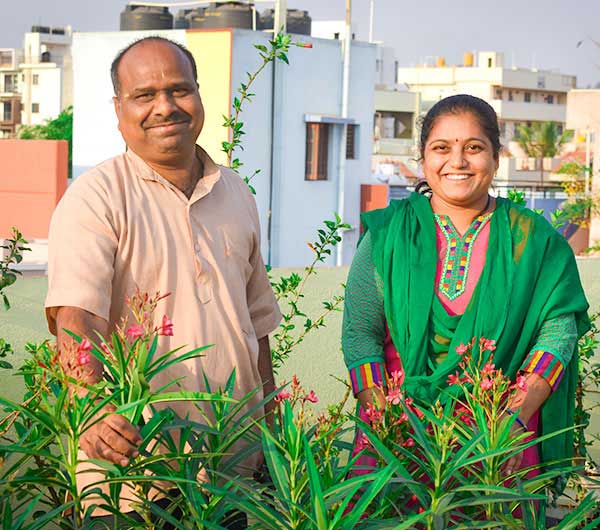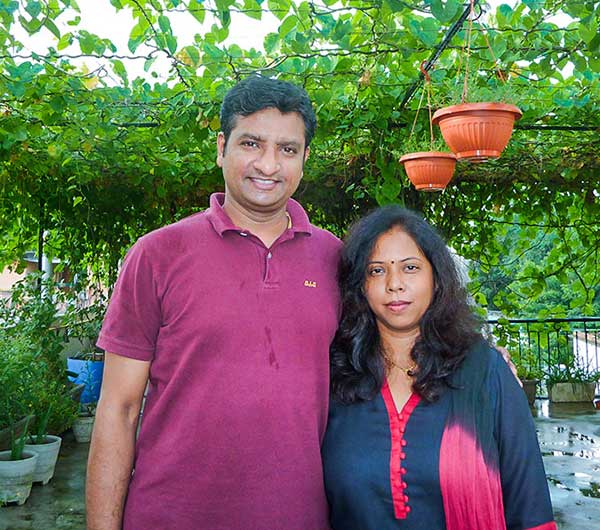A Long and Fruitful Journey of Organic Gardening
By: Gaurav Bankar | Date: 1st May 2018

Mr. Vasant Tole started gardening from the year 1994. He was interested in gardening from a long time but didn’t knew the right techniques.
Recovering from a back injury he attended a program named “Sakaal Bhajipala” organized by Sakaal in 1992. After gaining the required knowledge Mr. Tole started his journey of organic gardening.
He is of the view that farmers are unaware of the disadvantages of using chemical fertilizers. The usage of chemical fertilizers makes the ground water resistant i.e. the soil is not able to hold the water.

. So during the monsoon the top layer of soil is washed away with the running water. That why he advocates of using organic fertilizers and pesticides.
Mr. Tole has a compost and vermi-compost project at their terrace garden. He informs before the process of composting begins, the temperature rises to 80 degrees and gradually drops down to 25-30 degrees.
That’s when the earthworms start their work and the process actually begins. When the compost is formed on the top layer, water is required to be sprinkled which lets the methane gas escape. It also doesn’t let the temperature drop any further.

If you maintain this procedure it takes approximately 40 days for the compost to be ready. Earthworms stay in cooler region, if they don’t find any cool place they die. It is essential to keep temperature low for the survival of earthworms.
Earlier Mr. Tole used to use soil but now he prefers cow-dung cakes. He uses a bit of soil and adds diluted Gomutra (cow urine) in it. He specifically tells to dilute the Gomutra because if not diluted it kills all the necessary bacteria.
He suggests that it is not necessary ingredient if not readily available then mix soil with greater amount of water and spread this water on compost structure. Regularly sprinkle water on the compost to keep the temperature maintained.

Water being an important commodity its reuse is very essential which can be seen at Mr. Tolle’s house. The kitchen water which earlier used to go into drainage directly he collected it in a 200 litre tank using pipes.
He watered trees from that tank. He said that “the more waste water we use for the plants; it helps to grow more bacteria which enhances the growth of plants.” It is good to give water obtained from cleansing the utensils in which you have eaten.
This practice has stopped now in the society because of the drainage system but earlier it was a common practice known as “Dhun”.

He makes use of plastic bottles to water the plants by making small holes on the bottle cap. 1 litre water is sufficient for 1 tree. The tree should have dampness near the roots to keep it cool.
On his terrace he has grown have fig, pomegranate, guava, banana, papaya tree. He also grows vegetables but they are based on the availability of water. Mr Tole mixes cow-dung cakes powder in soil and uses it as fertilizer.

For pesticides he makes a mixture of onion juice and water in 1:1 ratio and spray it on the trees. This is a very effective technique invented by a farmer in Madhya Pradesh. Water should be used in less and sufficient quantity for plants and avoid excess use.
In his profound words Mr. Tole says “To be honest, you cannot buy sense of the satisfaction with money. The happiness which I feel doing gardening cannot be put in words. Trees are always talking to us, sharing knowledge”.

In his profound words Mr. Tole says “To be honest, you cannot buy sense of the satisfaction with money. The happiness which I feel doing gardening cannot be put in words. Trees are always talking to us, sharing knowledge”.

















